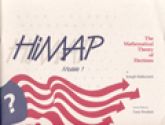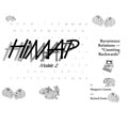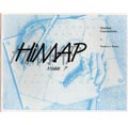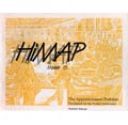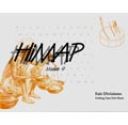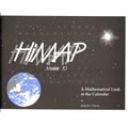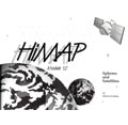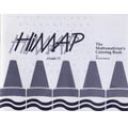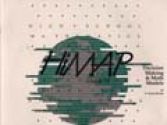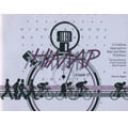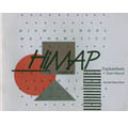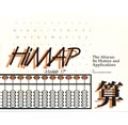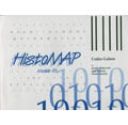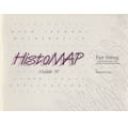Full Member Resources
COMAP offers members access to numerous mathematics and modeling programs, products, and materials in a variety of collections and formats. Our online library has more than 1500 resources. This page lists resources with most recent first. Please use the Search box or the filter options in the Find Resources menu to assist in locating desired products. For additional assistance or if you have questions, please don't hesitate to contact us.
Dimensional Analysis (UMAP)
A unit that relates linear algebra to dimensional analysis. In using this module given a physical system and the factor…
A Cash Flow Model for Magazine Subscriptions (UMAP)
In this module a matrix model is developed for projecting the quarterly cash flow of a magazine. Interpretations and va…
Perturbation Theory (UMAP)
This module gives a historical and self-contained introduction to the method of solving nonlinear differential equation…
The Statistical Evaluation of Burn Care (UMAP)
A model for the probability of death from a burn is developed in this module. This model is used in comparisons of pati…
Descriptive Models for Perception of Optical Illusions: Part I (UMAP)
In this unit, the historical background of the study of stable illusions of angle is sketched to show how a 19th centur…
Random Walks and Fluctuations (UMAP)
This module presents new and simplified proofs of several theorems, including the arc sine law for sojourn times. The t…
I Will if You Will...A Critical Mass Model (UMAP)
This module introduces the critical mass model, which is applied to examples in which individuals must decide to cheat…
Measurement Scales (UMAP)
This unit introduces four types of measurement scales -- nominal, ordinal, interval, and ratio -- and considers their u…
Using Percent (HiMAP)
This comprehensive unit emphasizes that understanding percentages is essential for survival in today's world of complic…
Problem Solving Using Graphs (HiMAP)
This examination of graph theory introduces techniques such as minimum-cost spanning tress, shortest-route algorithms…
The Mathematics of Conflict (HiMAP)
Students see how decision mathematics can be used to understand conflict and give us a new historical perspective. HiMA…
Symmetry, Rigid Motion, and Patterns (HiMAP)
Students examine patterns in wallpaper and ancient artifacts to discover the fascinating applications of basic aspects…
The Mathematical Theory of Elections (HiMAP)
This module illustrates how mathematics can design and analyze election and ranking methods. Preference schedules, fair…
Recurrence Relations - 'Counting Backwards' (HiMAP)
Introduce students to difference equations by showing their unique application to computer science. HiMAP Module 2. Hi…
Student Generations (HiMAP)
Introduces functions and strategies (heuristics) for students to generate and solve their own problems. HiMAP Module 7…
The Apportionment Problem: The Search for the Perfect Democracy (HiMAP)
A look at the apportionment of the House of Representatives, and how many representatives from each state are sent to C…
Fair Divisions: Getting Your Fair Share (HiMAP)
Demonstrates how mathematics can be used to divide objects fairly, such as the equitable distribution of an item that i…
A Mathematical Look at the Calendar (HiMAP)
This unit demonstrates mathematical techniques for finding the day of the week on a given date, finding mathematical pa…
Spheres and Satellites (HiMAP)
Students use graphing calculators to discover amazing geometric facts about our backyards, our world, and beyond. HiMAP…
The Mathematician's Coloring Book (HiMAP)
The four-color theorem is introduced through maps, pictures, and worksheets, which explore the branch of mathematics th…
Decision Making & Math Models (HiMAP)
This unit discusses the mathematical models that help solve three common management problems. The unit works well with…
A Uniform Approach to Rate and Ratio Problems (HiMAP)
A technique for solving rate and ratio problems, the Universal Rate Formula, is applied to a variety of mathematical si…
Explore Sorts (HiMAP)
Sorting algorithms are used by virtually every computer program. This module and companion Macintosh software examine s…
The Abacus: Its History and Applications (HiMAP)
Critical mathematics concepts such as using word names, standard notation, and place value are brought to life when stu…
Codes Galore (HiMAP)
Students use the recently developed mathematics of codes used to hide and compress data. HiMAP Module 18. HiMAP librar…
Fair Voting - Weighted Votes for Unequal Constituencies (HiMAP)
Students are challenged to use the mathematics of weighted voting to wrestle with important social issues such as how p…
Optimality Pays: An Introduction to Linear Programming (HiMAP)
This module provides a history of linear programming and covers several business-management concepts including assignme…
Regression Toward the Mean (UMAP)
Regression toward the mean is a phenomenon that is a natural by-product of less-than-perfect correlation between two va…
Algebra: Language for a Changing World: Unit 1 Variables
What algebra is used by police to calculate speeding fines? Can algebra provide a useful tool in helping our environmen…
Statistics: Decisions Through Data: Unit 1 What Is Statistics
Statistics: Decisions Through Data is an introductory statistics course that unravels the statistical arguments behind…
Statistics: Decisions Through Data: Unit 2 Stemplots
Statistics: Decisions Through Data is an introductory statistics course that unravels the statistical arguments behind…
Statistics: Decisions Through Data: Unit 3 Histograms and Distributions
Statistics: Decisions Through Data is an introductory statistics course that unravels the statistical arguments behind…
Statistics: Decisions Through Data: Unit 4 Measures of Center
Statistics: Decisions Through Data is an introductory statistics course that unravels the statistical arguments behind…
Statistics: Decisions Through Data: Unit 5 Boxplots
Statistics: Decisions Through Data is an introductory statistics course that unravels the statistical arguments behind…
Statistics: Decisions Through Data: Unit 6 The Standard Deviation
Statistics: Decisions Through Data is an introductory statistics course that unravels the statistical arguments behind…
Algebra: Language for a Changing World: Unit 2 Representing Relationships Tables and Graphs
What algebra is used by police to calculate speeding fines? Can algebra provide a useful tool in helping our environmen…
Find Resources
Browse More Resources
Search





